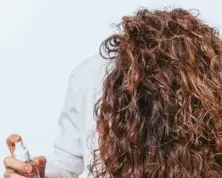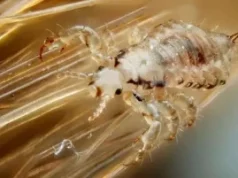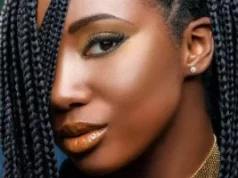Hair conditioning is an essential part of a comprehensive hair care routine. It helps to nourish and strengthen the hair, improve its appearance and manageability, and protect it from damage. In this article, we will delve into the basics of hair conditioning, including its role, frequency, pros and cons, and debunking common misconceptions. We will also discuss signs that indicate your hair needs more conditioning, explore alternatives to daily conditioning, provide tips for an optimal conditioning routine, and highlight expert advice from haircare specialists.
Is it Possible to Condition Your Hair too Much?
Yes, it is possible to over-condition your hair. While conditioning is beneficial for nourishing and hydrating the hair, excessive use of conditioner can lead to a buildup of product residue on the hair and scalp. This can make the hair appear dull, limp, and weighed down. Over-conditioning can also cause the hair to become greasy and may even lead to decreased hair volume and texture. It is important to find the right balance and avoid using too much conditioner or conditioning too frequently.
Also Read: How To prepare Onion Juice For hair growth
How to Avoid Over-Conditioning Your Hair:
- Assess your hair’s needs: Pay attention to the condition of your hair. If your hair feels dry, damaged, or lacks moisture, it may require more conditioning. However, if your hair feels oily or heavy, it is a sign that you may be over-conditioning.
- Adjust the amount of conditioner: Use the appropriate amount of conditioner for your hair length and thickness. Avoid using excessive amounts of conditioner, especially on the roots or scalp.
- Focus on the mid-lengths and ends: Concentrate the conditioner on the mid-lengths and ends of your hair, as these areas tend to be drier and more prone to damage. Minimize or avoid applying conditioner to the roots to prevent excess oiliness.
- Choose lightweight conditioners: If you have fine or oily hair, opt for lightweight conditioners that won’t weigh down your hair. Look for products specifically formulated for your hair type.
- Rinse thoroughly: Ensure that you rinse out the conditioner thoroughly after application. Any residual product left in the hair can contribute to buildup and make the hair appear greasy.
- Use clarifying shampoos occasionally: Incorporate clarifying shampoos into your hair care routine once in a while to remove any product buildup. This helps maintain a clean and healthy scalp.
Should I Condition my Hair Every day?
The frequency of hair conditioning varies depending on factors such as hair type, texture, and overall hair health. While some individuals may benefit from daily conditioning, others may find it excessive. As a general guideline, it is not necessary to condition your hair every day unless your hair is very dry or damaged.
If you have oily or fine hair, daily conditioning may weigh down your hair and make it appear greasy. In such cases, it is recommended to condition every other day or a few times a week. On the other hand, if you have dry or coarse hair, more frequent conditioning may be beneficial to restore moisture and manageability.
Ultimately, it is important to assess your hair’s needs and find a balance that works for you. Pay attention to how your hair responds to conditioning and adjust the frequency accordingly. Remember that using the right amount of conditioner and focusing on the areas that need it most can help maintain the health and appearance of your hair without overdoing it.
Signs Your Hair Needs More Conditioning
Certain signs indicate that your hair requires additional conditioning. These include dryness, frizziness, split ends, tangles, and overall lack of manageability. By recognizing these signs, you can adjust your conditioning routine to meet your hair’s needs and restore its health and vitality.
Also Read: side effects of Using Clove Water For hair Growth
Alternatives to Daily Conditioning: Exploring Other Hair Care Methods
While daily conditioning works well for some individuals, others may prefer alternative hair care methods. These include deep conditioning treatments, leave-in conditioners, hair masks, and oil treatments. Exploring these alternatives can provide added nourishment and address specific hair concerns.
Best Practices: Tips for Optimal Hair Conditioning Routine
To optimize your hair conditioning routine, it’s important to follow some best practices. These include using the right amount of conditioner, focusing on the mid-lengths and ends, avoiding the scalp when applying conditioner, rinsing thoroughly, and considering the use of clarifying shampoos to prevent product buildup. These tips ensure that your hair receives the maximum benefits from conditioning.
How Does Conditioner Work & Why Is It Important?
Conditioner is a hair care product that helps to improve the texture, manageability, and appearance of the hair. It works by providing moisture, nourishment, and protection to the hair strands. Conditioners typically contain ingredients such as moisturizers, oils, proteins, and vitamins that help to hydrate the hair, seal the cuticles, and reduce frizz.
When you apply conditioner to your hair, it coats the hair strands and penetrates the outer layer, known as the cuticle. This helps to smooth the cuticle and repair any damage, making the hair feel softer, smoother, and more manageable. Conditioners also help to detangle the hair, reduce static, and provide some level of heat and environmental protection.
The importance of using conditioner in your hair care routine cannot be overstated. Here are a few reasons why conditioner is important:
- Moisture retention: Conditioners help to replenish moisture in the hair, preventing dryness, brittleness, and breakage. They lock in moisture and prevent it from evaporating, keeping the hair hydrated and healthy.
- Damage repair: Conditioners can help repair damage caused by styling, heat tools, chemical treatments, and environmental factors. They provide essential nutrients and proteins that strengthen the hair and improve its resilience.
- Enhanced manageability: Conditioning the hair makes it easier to detangle and style. It smooths the cuticle, reduces friction between hair strands, and minimizes static, making the hair more manageable and easier to comb or brush.
- Improved appearance: Conditioned hair tends to have a healthier and shinier appearance. It reduces frizz, adds shine, and enhances the overall look and feel of the hair.
Types of Conditioners and Their Frequency in Your Hair Care Regimen:
There are different types of conditioners available, and their usage frequency depends on the specific needs of your hair. Here are some common types of conditioners:
- Rinse-out conditioner: This is the most common type of conditioner that is applied after shampooing and rinsed out. It provides immediate hydration and nourishment to the hair. Rinse-out conditioners are generally used 2-3 times a week, but the frequency can be adjusted based on your hair type and needs.
- Leave-in conditioner: As the name suggests, leave-in conditioners are applied to the hair and left in without rinsing. They provide longer-lasting moisture and protection. Leave-in conditioners can be used daily or as needed, especially for dry or damaged hair.
- Deep conditioner or hair mask: These are intensive conditioning treatments that provide deep hydration and repair to the hair. They are typically used once a week or as recommended by the product instructions to address specific concerns, such as dryness, damage, or lack of elasticity.
- Co-wash conditioner: Co-washing involves using a conditioner instead of a shampoo to cleanse the hair. This method is suitable for those with very dry or curly hair that requires extra moisture. Co-washing can be done as often as needed, but it’s important to clarify the hair occasionally to remove any buildup.
When Should You Condition Your Hair Often?
There are a few instances when conditioning your hair more frequently may be beneficial:
- Dry or damaged hair: If your hair is dry, damaged, or chemically treated, you may need to condition it more often to restore moisture, repair damage, and improve its health.
- Harsh weather conditions: Environmental factors like dry or cold air can strip moisture from the hair. Conditioning more frequently during such conditions can help combat dryness and protect the hair.
- Frequent heat styling: If you regularly use heat styling tools such as flat irons or curling wands, conditioning your hair
Conclusion
In conclusion, hair conditioning plays a vital role in maintaining healthy, nourished, and manageable hair. It works by providing moisture, nourishment, and protection to the hair strands, helping to repair damage and improve the overall appearance of the hair. Using the right type of conditioner for your hair type and incorporating it into your hair care routine can make a significant difference in the health and appearance of your hair.






